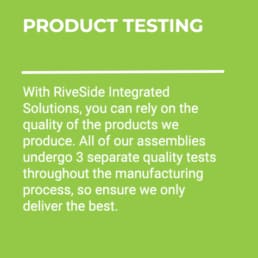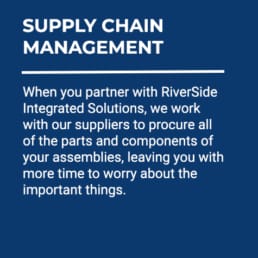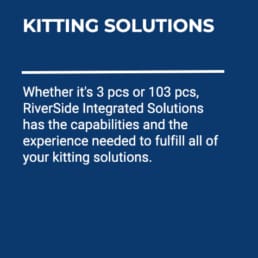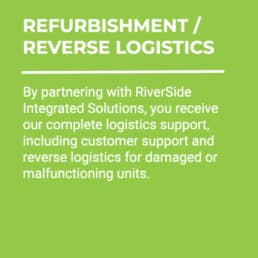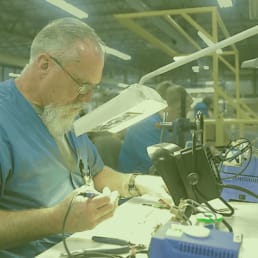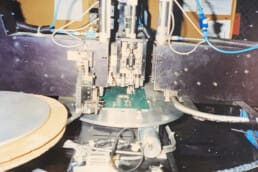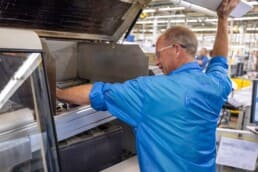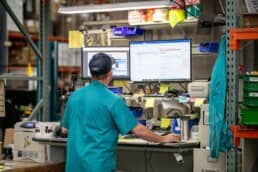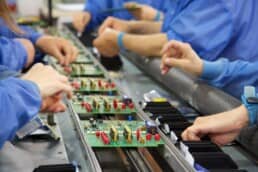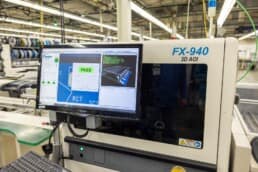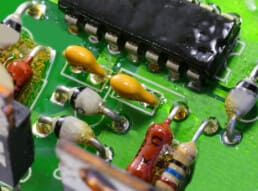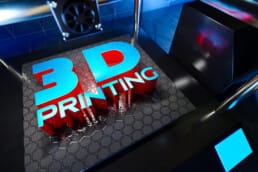Lean manufacturing (lean) has been around for decades. It focuses on streamlining production to improve value and productivity while minimizing waste. From a lean perspective, waste is anything that does not add value. It is important to understand lean concepts and how they can give your team a competitive edge. This is true whether original equipment manufacturers (OEMs) perform production in-house or outsource to a contract manufacturer. At RiverSide Integrated Solutions (RIS), we use lean principles at every level and stage of production. This helps us ensure we provide only the highest quality services to our customers. Lean manufacturing offers an array of benefits. When lean principles are applied, sources of waste are reduced or even eliminated. This improves operations efficiency and product quality – adding significant value for customers. With shorter production times, manufacturers are more nimble and able to respond to customer needs and market conditions. Additionally, lean strategies can be applied to supply chain and product development processes. This leads to quicker speed to market and a significant competitive edge. Improved efficiency makes personnel and equipment available for innovations. As they streamline their processes, OEMs can better respond to fluctuations in demand and other market variables. This ultimately results in fewer delays and better lead times. Less waste and better adaptability make OEMs better positioned to thrive today – and tomorrow. More productivity, less waste, and better quality make a more profitable company. Identification and elimination of waste are crucial to the success of lean manufacturing. Your quality improvement team may flag several types of waste when using a lean approach in manufacturing. This includes contract manufacturers. Below are some of the most common forms of waste identified: This applies to personnel or machinery. When personnel spend time waiting for machines to be available or materials to arrive, the facility’s efficiency suffers. Too much or too little inventory leads to inefficiencies. Logistics includes the workflow of the product on the manufacturing floor. Still, it extends beyond the facility to include acquiring raw materials and transporting the final product to the customer. The objective of manufacturing is to meet specifications per the agreed-upon design. There is often a significant amount of wasted time, equipment and resources spent on over-engineering and over-processing a product. This can refer to wasted motion of personnel or equipment. Reducing unnecessary movement is key to improving the entire manufacturing supply chain. Facilities that are organized and laid out well excel in this area. Scrapped products and rework of off-spec products can be a huge area of waste. Quality teams must take the time necessary to develop their quality control processes. If they don’t, it can lead to waste increase. Let us now discuss some practical ways to apply lean principles to manufacturing. When lean principles are applied, sources of waste are reduced or even eliminated. This improves operations efficiency and product quality – adding significant value for customers. With shorter production times, machine shops are more nimble and able to respond to customer needs and market conditions. Additionally, lean strategies can be applied to the entire supply chain. They lead to quicker speed to market and a significant competitive edge. Each contract manufacturer’s culture permeates every aspect of the facility, including the manufacturing process. All levels of the organization must participate in the lean culture, from management to the production floor. It is essential to explain to personnel why a lean approach and efficient manufacturing are critical to business success. Personnel need to know that leadership is open to new ideas. They need to believe that the company will carefully consider any suggestions for improvements they submit. At RIS, a key focus of our lean manufacturing approach is maximizing customer value while minimizing waste. We empower every employee to make a difference. The physical layout of a manufacturing facility and the workflow path a product takes directly impact productivity. Namely the level of unnecessary motion impact this. Contract manufacturers that apply lean manufacturing principles should follow raw materials throughout the manufacturing process. This can help them better understand areas for improvement. Simple measures like the location of equipment can significantly impact manufacturing efficiency. Contract manufacturers are increasingly aware of the downtimes and costs resulting from unexpected equipment failures. They are implementing preventative and predictive maintenance plans to secure a competitive edge. Maintenance programs that rely on manual data entry and tracking are slow and are often too “reactive” in nature. It is vital to integrate smart, condition-based monitoring systems into existing manufacturing processes. These smart programs provide contract manufacturers with scheduled maintenance events based on known wear. They use observed conditions, dashboard monitoring and trends to create projections. To achieve lean manufacturing, the bottom line is to be proactive rather than reactive.What are the Key Strategies of Lean Manufacturing?
INCREASED QUALITY
FASTER SPEED TO MARKET
SUSTAINABILITY
IMPROVED BOTTOM LINE
TYPE OF WASTE COMMON IN MANUFACTURING
WAITING
UNOPTIMIZED INVENTORY
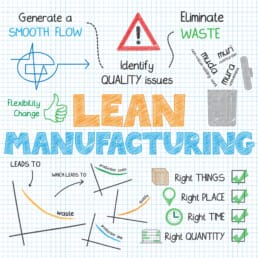
INEFFICIENT LOGISTICS
OVER-PROCESSING OR OVER-ENGINEERING
UNNECESSARY MOTION
DEFECTS OR OTHER QUALITY ISSUES
Examples of How Contract Manufacturers Apply Lean Principles
ESTABLISH A LEAN CULTURE

ORGANIZE THE FACILITY FOR SUCCESS
OPTIMIZED MAINTENANCE PLAN
About RiverSide Integrated Solutions
RIS is an advanced contract manufacturer providing robust solutions in circuit board assembly and product assembly. We employ more than 350 people and provide services to OEMs worldwide. We operate two state-of-the-art manufacturing facilities within the US.
With all of the choices in contract manufacturers out there, we know it can be challenging to find someone who understands your business model and has your best intentions in mind. RIS has always proven to be a win-win-focused relationship.
As your one-stop shop, we have the capabilities, capacity, quality assurance standards and resources to support all of your manufacturing needs. We understand that supply chain management is complex and very time-consuming, so we urge our customers to utilize us in the fullest capacity.
Our total-package solutions include:
- Extensive supply-chain network
- Full box-build assembly
- Dedicated Program Team
- Warehousing, kitting and drop-shipping capabilities
- Reverse logistics
- Flexible order fulfillment
- Scalability to meet your needs
Contact us today at (507) 523-3220 to see how we can help with your manufacturing project, or click contact us for a quote.




